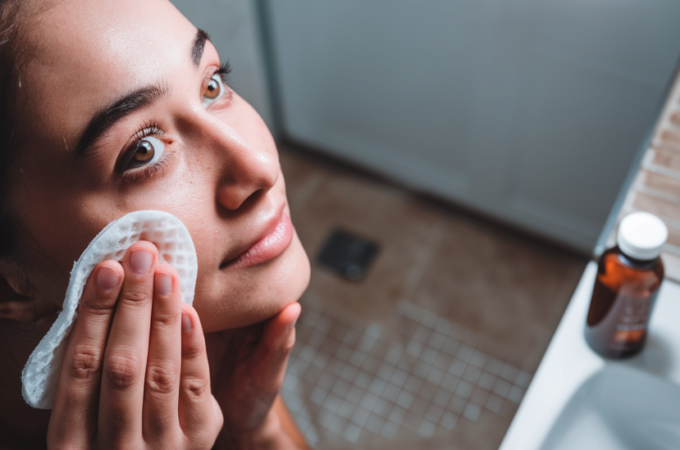
5 Key Korean Skincare Ingredients that Tremendously Improve Acne Scars
Acne and acne scarring are some of the most common skin care concerns. They can be troublesome and confidence-zapping, especially if a typical week for you involves being out and about and meeting people.
They say, “love the skin you’re in”, and while that’s absolutely right, there’s no harm in a little self-improvement to make you feel good about yourself if that’s what you truly want.
When it comes to treating mild to moderate acne and skin care products, there’s really no shortage of choices. There are hundreds of products specifically designed to be the “miracle solution” for oily, acne-prone skin, but what exactly are those hardworking ingredients that improve skin texture amidst all the branding and marketing?
Let’s take a closer look at the key ingredients found in some of the best Korean skin care products for acne, and why you should be keeping an eye out for them.
What Causes Acne Scars?
Our skin naturally sheds off dead cells in a process called desquamation. This process is initially fast and efficient when we’re young, but it eventually decreases as we age. That’s where the problem starts.
Acne-prone skin, in particular, has a poor cell turnover rate, which leads to an increase in acne. Acne is caused by the buildup of excess sebum, bacteria, and dirt inside the pores. The pore will become swollen until eventually the wall of the pore breaks and the infected pus inside spreads to the surrounding areas.
Some breaks occur near the surface layers of the skin, and this is usually fine because facial skin has a remarkable ability to heal superficial wounds in a matter of 1-2 weeks, even without treatment. However, if a break occurs deep enough in the skin, the damage and inflammation can be more significant and can cause more severe scarring.
Improving Acne Scars
Your approach to improving mild to moderate acne scars can be reactive or proactive (ideally, both).
A reactive response means addressing the aftermath of an acne breakout, and this usually involves the use of skin-calming products that boost the healing capabilities of your skin so that it can hasten our skin recovery.
A proactive response is more about averting severe breakouts from happening in the first place so that the damage to the skin isn’t as significant. This involves using products that improve your skin’s resilience, keep bacteria in check, and manage your skin’s inflammatory response if a breakout does happen.

Here are some ingredients found in Korean skin care products that help do just that:
Centella Asiatica
Centella Asiatica is a medicinal herb that’s been used for thousands of years in traditional folk medicine for everything from asthma to rheumatism. This tiny plant packs quite a punch as it’s loaded with active phytochemicals like asiaticoside, asiatic acid, asiatic acid, madecasosside, and madecassic acid; amino acids, vitamins, antioxidants, and polyphenols.
Centella Asiatica has antibacterial and antifungal components that help manage breakouts and prevent them from infecting too deeply in the skin, as well as anti-inflammatory properties which can help calm irritated skin. It also improves wound healing, increases collagen production, and enhances the strength and integrity of skin tissues, which in turn helps improve the texture of acne-scarred skin.

Snail mucin
Snail mucin, or “snail slime”, is a gel-like secretion derived from common garden snails. Aside from acting as a lubricant that helps snails move across surfaces, snail mucus also serves as a protective barrier for its soft, vulnerable outer body, and thus contains a complex mixture of glycoprotein enzymes, copper peptides, hyaluronic acid, glycolic acid, and antimicrobials.
Allantoin in particular is also naturally found in snail mucus. Allantoin is a moisturizer that has a keratolytic effect on the skin — it softens the rougher layers of the epidermis, making it easier to slough off dead skin cells; improves cell regeneration, and speeds up wound healing. In fact, a study stated that snail mucus helps wounds heal twice as fast compared to a normal saline solution.
Propolis
Sometimes called “bee glue”, propolis is a resin-like material derived from certain trees which bees use to build their hives. Propolis contains a number of flavonoids that are known to have antiseptic, anti-inflammatory, antimicrobial, antifungal, antibacterial, and antioxidant properties, as well as wound healing benefits.
According to research, propolis is especially effective against acne vulgaris, or cystic acne, as it helps inhibit the spread of Cutibacterium acnes, a bacteria found deep inside the pores that are primarily responsible for the occurrence of acne.

Alpha hydroxy acids (AHAs)
AHAs are water-based acids derived from plants or fruit. AHAs are primarily an exfoliant — they improve your skin’s cell turnover rate by breaking down dead cells on the epidermis to make way for newer, smoother skin.
The AHA exfoliation process is great for acne-prone skin and mild acne scarring because it helps even out the skin texture, addresses mild discolorations that may accentuate acne scars, and unclogs pores more efficiently, which in turn helps prevent future breakouts.
- Best for: oily, acne-prone or aging skin
- Popular AHAs in skincare: glycolic acid, lactic acid, and mandelic acid
Beta hydroxy acid (BHA)
BHA is another type of exfoliant, but unlike the variety of AHAs out there, there’s only one type of BHA and that’s salicylic acid. BHA is an oil-soluble acid. As we know that oil attracts and dissolves other oils, this means that BHA can penetrate much deeper into the skin because it can combine effortlessly with the natural sebum in your pores.
BHA works by going through hair follicle openings to remove dead cells and excess sebum within the pore so they don’t build up and cause pimples. A study showed that salicylic acid is gentler than other superficial chemical peels and less irritating for a number of skin types, including darker skin which often experiences hyperpigmentation issues. Salicylic acid is also known to improve skin texture and address skin damage from UV exposure.
- Best for: oily, acne-prone and sensitive skin
- Popular BHA in skincare: salicylic acid
Conclusion
Mild to moderate acne scarring isn’t necessarily permanent. There’s always a way to improve your skin — with a consistent skincare routine and an informed understanding of how key ingredients in your products work, you can certainly improve your skin’s ability to bounce back and look better.




